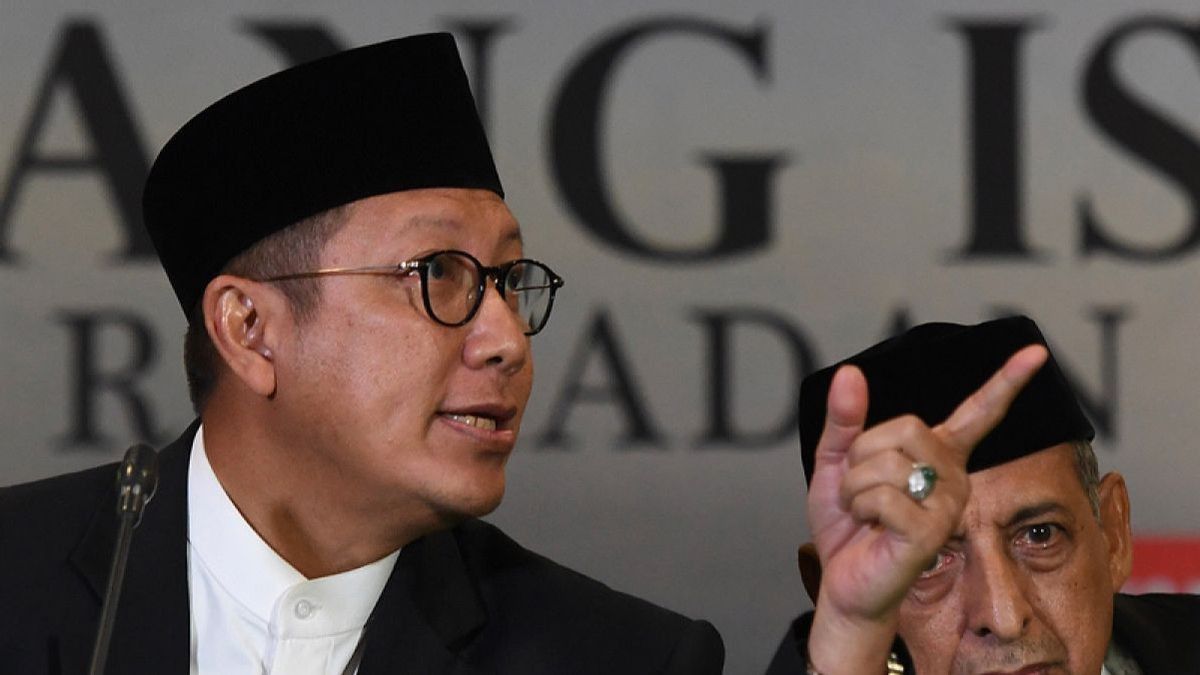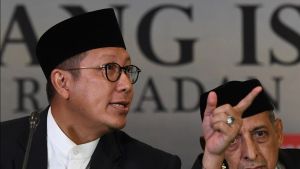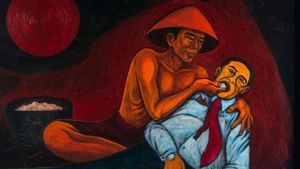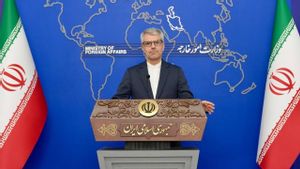JAKARTA - Indonesia is known as a country that is rich in diversity, including in terms of religion and culture. This was highlighted by Lukman Hakim Saifuddin, the former Minister of Religion of the Republic of Indonesia who said these two things had links and should not be questioned.
"Religion is a value that comes from God. This value when grounded, requires a place where values can be realized. If there is no place, the value will only float. The place is a culture," said Lukman Hakim as quoted by ANTARA, Sunday, August 18. The statement of Lukman was conveyed when he was a resource person in a discussion on religious and cultural relations initiated by the Muslim Council (MHM) at the Islamic Book Fair 2024. According to him, Indonesia can survive and be appreciated by many citizens of the world, one of which is because of religion and culture. Both make Indonesia survive from the past until now and become the capital of living life in the future.
"So religion, teachings, values of virtue with culture are unity that cannot be separated, even if it can be distinguished. Without culture, religion cannot circumvent. Culture requires value. Because culture is a way for humans to respond to problems faced. That way then becomes a habit, tradition, customs, then culture," he said. Lukman Hakim explains that there are two types of religious teachings namely universal (core, ushuli principal) and particular (branch, furuiyah). Universal teachings are believed to be true to all people without exception, whatever ethnicity, state, and religion, even by people who are not religious. For example, humanity, justice, equality in front of law, benefit, and others. "The equation in front of the law is a universal value of religion. So discriminatory practices are always rejected by religion. The harmony of the core of religious teachings, then destructive practices are always rejected by religious teachings," he said. Regarding religious teachings that are secular, the LHS emphasizes that let alone by all humans, even by fellow adherents of the same religion, can also be different. Fellow Muslims can differ in understanding the Shalat of the Subuh using the qunut or not. Likewise with the problem of grave pilgrimage and others. "Religious contributions are very important for culture. Without culture, religion cannot be grounded. Culture is necessarily diverse because it is human response in quantifying religious teachings," he said. "No matter how large the culture, don't deny the core of religion. Therefore, religious core teachings should not be punished for any reason," he added.
SEE ALSO:
Meanwhile, Professor of Philology at UIN Syarif Hidayatullah Jakarta Oman Fathurahman explained the role of religion promoting cultural diversity and cultural roles promoting religion. According to Prof. Oman, cultural diversity is a feature of Indonesia and Southeast Asia. Religion has a role in promoting it. The master of Ngaji Badan Nusantara (Ngariksa) gave an example of the Batik Sarong which later became the hallmark of Indonesian Muslims, although it was not used and known in Arabia. "Sarung Batik as a culture known outside Indonesia as one of the characteristics of Indonesian Muslims because it was promoted. Religion promotes cultural diversity," said Oman. "On behalf of practicing religious teachings, we know the culture of robe and mukena to cover aurat, and others," he added.*
(ANTARA/HO-Majelis Hukama)
The English, Chinese, Japanese, Arabic, and French versions are automatically generated by the AI. So there may still be inaccuracies in translating, please always see Indonesian as our main language. (system supported by DigitalSiber.id)

















